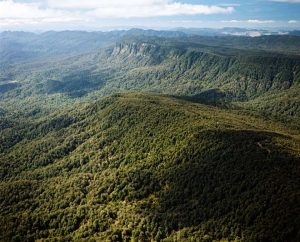
Te Urewera in New Zealand was given rights to nature in 2014 to protect its intrinsic worth and its connection with Tūhoe (its Indigenous Māori tribe)
Biodiversity is declining at rates unprecedented in human history (see e.g. IPBES 2019). Environmental economics sees biodiversity loss as a negative externality – the consequence of economic activity that affects external parties without this being reflected in market prices.The way to address this is through environmental taxes, tradeable permits and/or regulations, yet biodiversity is still declining.
One emerging concept focuses on giving rights to nature. At its core, Rights of Nature (RoN) allows persons to take legal action on behalf of nature, as opposed to on behalf of persons affected by biodiversity loss. How does this matter for environmental economics?
Together with Prof. Claire Armstrong at UiT The Arctic University of Norway and Prof. Margrethe Aanesen at SNF in Bergen, Norway, we compared 14 RoN case studies around the world. By being granted legal status, natural ecosystems emerge as separate entities with their own agency, in the same way that other non-human entities such as organisations can exist as entities in law under limited conditions. The legal design in terms of guardianship matters: do guardians have limited liability? Can they generate income? What are their rights?
In our analysis, we find that liability is a key feature: in India, the RoN for the Ganges river was overturned because it was unclear who the custodians are and who would be liable to pay damages. In the U.S, the Lake of Erie Bill of Rights was overturned because it was unclear what activities farmers would be liable for if sued.
Reference:
Kahui V., Armstrong C.W., Aanesen M. (2024) Comparative analysis of Rights of Nature (RoN) case studies worldwide: Features of emergence and design. Ecological Economics 221:108193 https://www.sciencedirect.com/science/article/pii/S0921800924000909

